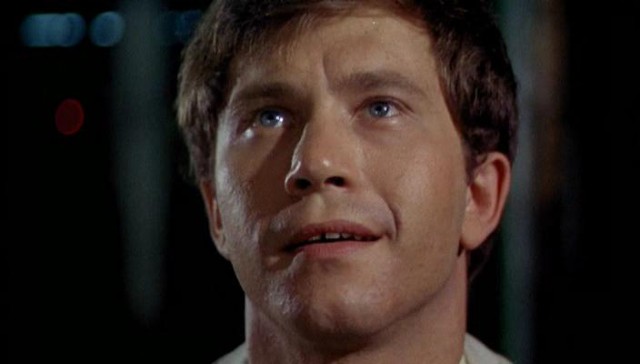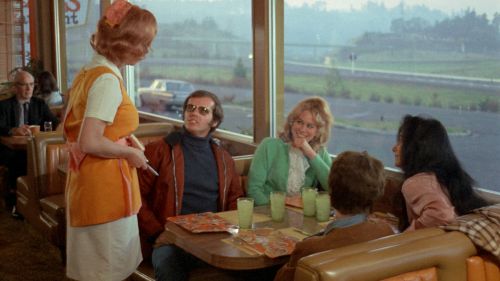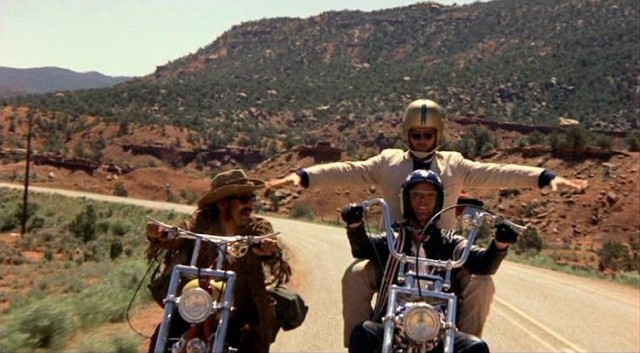
Dennis Hopper, Peter Fonda, and Jack Nicholson play a trio who get their motor running and head out on the highway in Easy Rider, celebrating its golden anniversary September 20 at Radio City Music Hall
EASY RIDER (Dennis Hopper, 1969)
Radio City Music Hall
1260 Sixth Ave. at Fiftieth St.
Friday, September 20, 8:00 — tickets go on sale August 2 at noon
212-465-6000
www.msg.com
 Fifty years ago, a film came along that perfectly captured sociopolitical changes taking place across America; the golden anniversary of that revolutionary tale is being celebrated on September 20 at Radio City Music Hall with a special one-night-only screening introduced by one of the stars and featuring songs played live by some of the original artists. Tickets go on sale at noon on August 2 for Easy Rider Live, a gala presentation of a newly remastered print of Dennis Hopper’s seminal film, which was named Best First Work at Cannes, with opening remarks by costar Peter Fonda and live performances by Roger McGuinn, John Kay of Steppenwolf, and special guests, produced by T Bone Burnett.
Fifty years ago, a film came along that perfectly captured sociopolitical changes taking place across America; the golden anniversary of that revolutionary tale is being celebrated on September 20 at Radio City Music Hall with a special one-night-only screening introduced by one of the stars and featuring songs played live by some of the original artists. Tickets go on sale at noon on August 2 for Easy Rider Live, a gala presentation of a newly remastered print of Dennis Hopper’s seminal film, which was named Best First Work at Cannes, with opening remarks by costar Peter Fonda and live performances by Roger McGuinn, John Kay of Steppenwolf, and special guests, produced by T Bone Burnett.
No mere relic of the late 1960s counterculture movement, Easy Rider still holds up as one of the truly great road movies, inviting audiences to climb on board as two peace-loving souls search for freedom on the highways and byways of the good ol’ U.S. of A. Named after a pair of famous western gunslingers, Wyatt (producer and cowriter Fonda), as in Earp, and Billy (director and cowriter Hopper), as in “the Kid,” make some fast cash by selling coke to a fancy connection (Phil Spector!), then take off on their souped-up bikes, determined to make it to New Orleans in time for Mardi Gras. Along the way, they break bread with a rancher (Warren Finnerty) and his family, hang out in a hippie commune, pick up small-town alcoholic lawyer George Hanson (an Oscar-nominated Jack Nicholson), don’t get served in a diner, and eventually hook up with friendly prostitutes Karen (Karen Black) and Mary (Toni Basil) in the Big Easy. “You know, this used to be a helluva good country. I can’t understand what’s gone wrong with it,” George says to Billy as they start discussing the concept and reality of freedom. “Oh, yeah, that’s right. That’s what it’s all about, all right. But talkin’ about it and bein’ it, that’s two different things. I mean, it’s real hard to be free when you are bought and sold in the marketplace. Of course, don’t ever tell anybody that they’re not free, ’cause then they’re gonna get real busy killin’ and maimin’ to prove to you that they are. Oh, yeah, they’re gonna talk to you, and talk to you, and talk to you about individual freedom. But they see a free individual, it’s gonna scare ’em.”
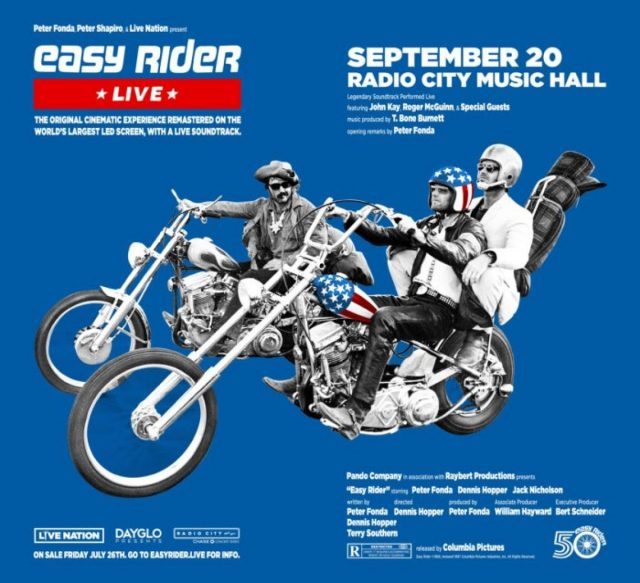
The always calm Wyatt, who is also known as Captain America, and the nervous and jumpy Billy make one of cinema’s coolest duos ever as they personally experience the radical changes going on in the country, leading to a tragic conclusion. The Academy Award–nominated script, written with Terry Southern, remains fresh and relevant as it examines American capitalism and democracy in a way that is still debated today, particularly on Twitter. And the soundtrack — well, it virtually defined the era, featuring such songs as Steppenwolf’s “The Pusher” and “Born to Be Wild,” Jimi Hendrix’s “If 6 Was 9,” the Electric Prunes’ “I Had Too Much to Dream (Last Night),” the Chambers Brothers’ “Time Has Come Today,” Thunderclap Newman’s “Something in the Air,” and McGuinn’s “Ballad of Easy Rider.” The Radio City event should offer contemporary insight on just how far we’ve come — or haven’t — in half a century.
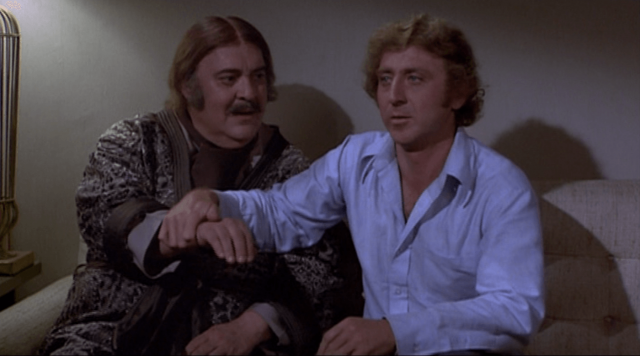
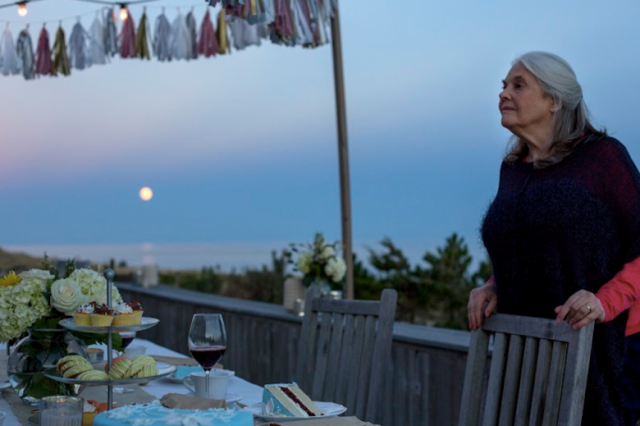
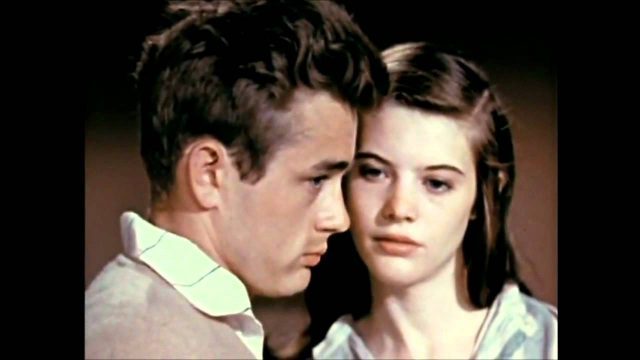
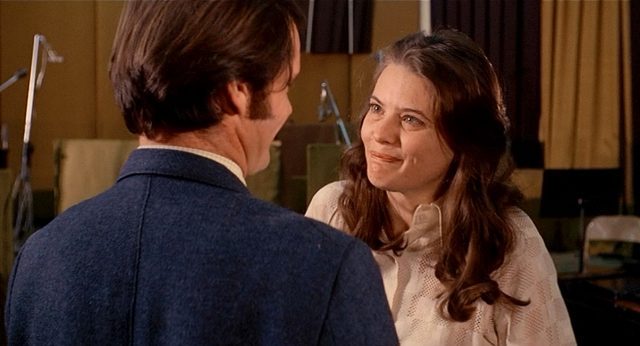
 A key film that helped lead 1960s cinema into the grittier 1970s, Bob Rafelson’s Five Easy Pieces is one of the most American of dramas, a tale of ennui and unrest among the rich and the poor, a road movie that travels from trailer parks to fashionable country estates. Caught in between is Bobby Dupea (Jack Nicholson), a former piano prodigy now working on an oil rig and living with a well-meaning but not very bright waitress, Rayette (Karen Black). When Bobby finds out that his father is ill, he reluctantly returns to the family home, the prodigal son who had left all that behind, escaping to a less-complicated though unsatisfying life putting his fingers in a bowling ball rather than tickling the keys of a grand piano. Back in his old house, he has to deal with his brother, Carl (Ralph Waite), a onetime violinist who can no longer play because of an injured neck and who serves as the film’s comic relief; Carl’s wife, Catherine (Susan Anspach), a snooty woman Bobby has always been attracted to; and Bobby’s sister, Partita (Lois Smith), a lonely, troubled soul who has the hots for Spicer (John Ryan), the live-in nurse who takes care of their wheelchair-bound father (William Challee).
A key film that helped lead 1960s cinema into the grittier 1970s, Bob Rafelson’s Five Easy Pieces is one of the most American of dramas, a tale of ennui and unrest among the rich and the poor, a road movie that travels from trailer parks to fashionable country estates. Caught in between is Bobby Dupea (Jack Nicholson), a former piano prodigy now working on an oil rig and living with a well-meaning but not very bright waitress, Rayette (Karen Black). When Bobby finds out that his father is ill, he reluctantly returns to the family home, the prodigal son who had left all that behind, escaping to a less-complicated though unsatisfying life putting his fingers in a bowling ball rather than tickling the keys of a grand piano. Back in his old house, he has to deal with his brother, Carl (Ralph Waite), a onetime violinist who can no longer play because of an injured neck and who serves as the film’s comic relief; Carl’s wife, Catherine (Susan Anspach), a snooty woman Bobby has always been attracted to; and Bobby’s sister, Partita (Lois Smith), a lonely, troubled soul who has the hots for Spicer (John Ryan), the live-in nurse who takes care of their wheelchair-bound father (William Challee).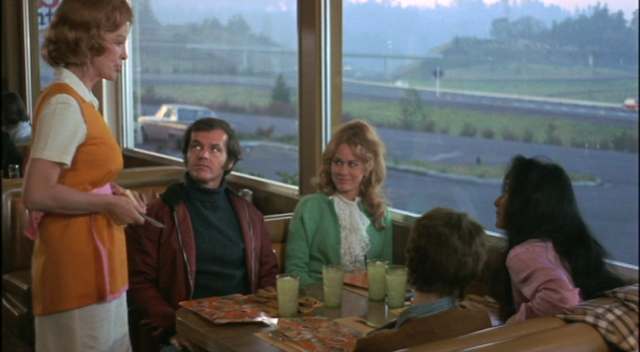
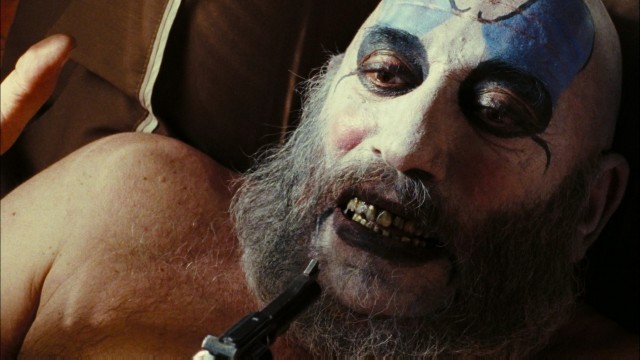
 Although writer-director Rob Zombie refuses to call this a sequel to 2003’s House of 1000 Corpses, The Devil’s Rejects is a sequel to Zombie’s 2003 horror hit House of 1000 Corpses. Mad clown Captain Spaulding (Sid Haig) is back, as are murderous siblings Otis (Bill Moseley) and Baby (Sheri Moon Zombie, Rob’s wife). Mother Firefly, played by the vixenous Karen Black in the first flick, is here portrayed with delicious delight by Leslie Easterbrook (of Police Academy fame). In this gorefest, Otis and Baby are on the lam from Sheriff Wydell (William Forsythe), who is determined to avenge his brother’s death; they hole up in a skeevy motel with a quartet of hostages that includes perennial Clint Eastwood bad boy Geoffrey Lewis and Three’s Company escapee Priscilla Barnes. Zombie cleverly plays with genre cliches throughout the film; what you think is going to happen — or not happen — gets turned upside down, so you never quite know where things are heading (although you can always count on a shot of his wife’s butt). Zombie, leader of the heavy metal band White Zombie, injects a wry sense of humor by including such ’70s pop music as Elvin Bishop’s “Fooled Around and Fell in Love,” Steely Dan’s “Reelin’ in the Years,” David Essex’s “Rock On,” and even Lynyrd Skynyrd’s “Freebird,” always at extremely appropriate moments. Add a star if you love films that relish gore; delete two and a half if you can’t stand them. The Devil’s Rejects is being shown January 2 and 3 at 12:10 am as part of Nitehawk Cinema’s Nitehawk Nasties and Nitehawk Midnite Screenings series.
Although writer-director Rob Zombie refuses to call this a sequel to 2003’s House of 1000 Corpses, The Devil’s Rejects is a sequel to Zombie’s 2003 horror hit House of 1000 Corpses. Mad clown Captain Spaulding (Sid Haig) is back, as are murderous siblings Otis (Bill Moseley) and Baby (Sheri Moon Zombie, Rob’s wife). Mother Firefly, played by the vixenous Karen Black in the first flick, is here portrayed with delicious delight by Leslie Easterbrook (of Police Academy fame). In this gorefest, Otis and Baby are on the lam from Sheriff Wydell (William Forsythe), who is determined to avenge his brother’s death; they hole up in a skeevy motel with a quartet of hostages that includes perennial Clint Eastwood bad boy Geoffrey Lewis and Three’s Company escapee Priscilla Barnes. Zombie cleverly plays with genre cliches throughout the film; what you think is going to happen — or not happen — gets turned upside down, so you never quite know where things are heading (although you can always count on a shot of his wife’s butt). Zombie, leader of the heavy metal band White Zombie, injects a wry sense of humor by including such ’70s pop music as Elvin Bishop’s “Fooled Around and Fell in Love,” Steely Dan’s “Reelin’ in the Years,” David Essex’s “Rock On,” and even Lynyrd Skynyrd’s “Freebird,” always at extremely appropriate moments. Add a star if you love films that relish gore; delete two and a half if you can’t stand them. The Devil’s Rejects is being shown January 2 and 3 at 12:10 am as part of Nitehawk Cinema’s Nitehawk Nasties and Nitehawk Midnite Screenings series.